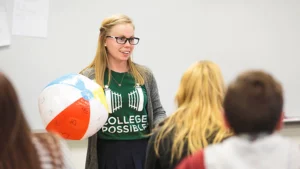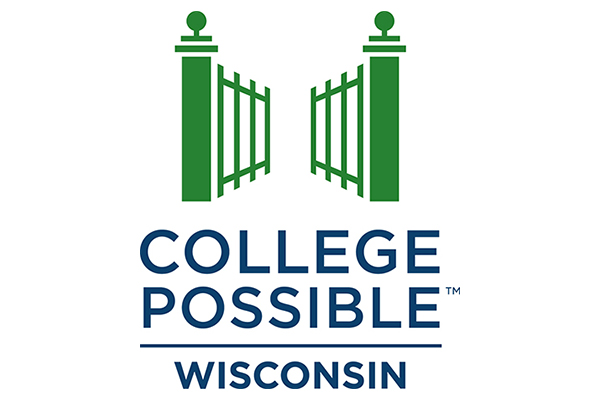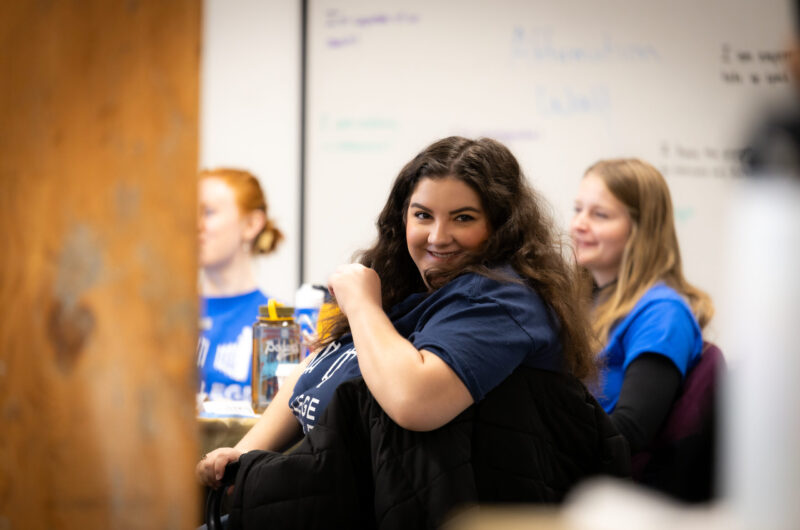 A recent report from AmeriCorps revealed that 60.7 million Americans volunteered in 2021. This volunteer service equates to about $123 billion in economic value for the United States. It’s no surprise, then, to learn how often College Possible AmeriCorps service members contribute to the upward mobility of the students they serve. In fact, it’s estimated that College Possible returns up to $6.41 per funder dollar invested back into the economy, thanks, in part, to the dedication of our AmeriCorps college access and success coaches.
A recent report from AmeriCorps revealed that 60.7 million Americans volunteered in 2021. This volunteer service equates to about $123 billion in economic value for the United States. It’s no surprise, then, to learn how often College Possible AmeriCorps service members contribute to the upward mobility of the students they serve. In fact, it’s estimated that College Possible returns up to $6.41 per funder dollar invested back into the economy, thanks, in part, to the dedication of our AmeriCorps college access and success coaches.
For College Possible students, the economic mobility gained from a college degree can be life-altering. And, because of the support of their near-peer college coaches, students enrolled in College Possible programs are 30% more likely to go to college immediately after high school and three times more likely to earn a bachelor’s degree. The opportunities unlocked by their degree subsequently make them 24% more likely to be employed and 3.5 times less likely to live in poverty when compared with their peers who don’t attend college. Let’s unpack what our AmeriCorps coaches do every day to empower high school and college students, so you can learn what to expect during an AmeriCorps year of service.
Empower the college dream for high school students
When you apply to become an AmeriCorps college access and success coach, you will be matched as either a college access coach who supports high school juniors and seniors in selecting, applying to, and enrolling in the college of their dreams, or a college success coach who champions college students through graduation.
As a college access coach, you work with an assigned cohort of students at our partner high schools, based on one of eight urban communities. Your coaching runs Monday through Thursday and may include in-person support, tech-connected support, or both for a 10–11 month service term running August through June or July. During a typical school week, you’ll manage day-to-day interactions with students while logging student engagement data into Salesforce to track student progress. Time with students is spent helping them navigate key college milestones: college selection, test prep, applications, financial aid, and college selection.
One seemingly simple, but potentially life-changing coaching area is completion of financial aid applications. According to recent National College Attainment Network analysis, the high school class of 2022 left about $3.6 billion in Pell Grants on the table by not completing the FAFSA. “There are many first-generation students out there who are going to college for the first time, and some just are not aware of these opportunities or basic steps to be college ready,” says Benjin, a College Possible college access coach.
In addition to help with the FAFSA, college access coaches facilitate ACT or SAT test prep sessions – support that typically comes with hefty price tag elsewhere. Equally important, you’ll help students find their best-fit schools, support them in completing college applications and essays, explore housing and transportation options, and even help your cohort enroll in their freshman year college courses.
Support college students through degree completion
If you are placed as a college success coach, you’ll be helping enrolled college students stay on track through degree completion. For many students, it can be jarring to adjust to the academic rigor of college life and the complex systems of a college campus, especially if you’re the first in your family to attend. A college success coach helps students navigate that tough first year by assisting them in finding study groups, directing them to campus and community resources, and helping them strengthen their time-management skills.
College access coaches also assist students with the tricky aspects of college financing that are often overlooked once they receive their first financial aid award letter. They remind students to renew aid packages, and find additional scholarships they can apply for. As a coach, you’ll even help students set up and manage their first personal budget, helping them prepare for common college expenses like textbooks, fees and transportation. In addition, coaches help connect their students to available campus and community resources like academic advisors, the financial aid office, or even mental health support.
Sometimes students have to take a break from college due to challenges beyond their control. To help them stay on track toward their college goal, you’ll stay in touch, help them envision their return to school, and guide them toward resources and tools to make that transition back more achievable.
On Fridays, all AmeriCorps coaches meet at their assigned site office where they explore networking opportunities and access professional development. “Fridays are an incredibly valuable time for us to connect as a cohort of coaches and national leadership staff. Together, we strengthen our community of practice, we build on their professional development to help them land their next job after service, and we sharpen the tangible skills necessary to serve students to the best of their ability,” says DiLiesha Bryant, national director of AmeriCorps recruitment and engagement at College Possible.
Says Al Fan, interim CEO at College Possible, “It’s evident how life-changing a college degree can be for the students we serve, and our college coaches are a crucial pillar of the support system that helps them achieve the college dream.”
If you are looking for a hands-on service experience where you can gain direct experience working with youth, then the College Possible AmeriCorps college access and success service roles may be the perfect fit. To learn more about serving with AmeriCorps at College Possible, register for an information session today!


